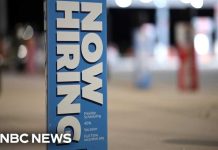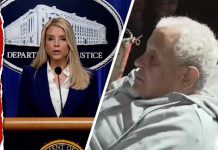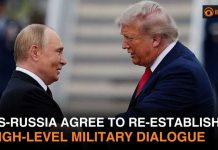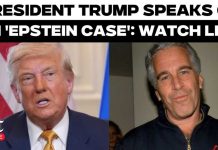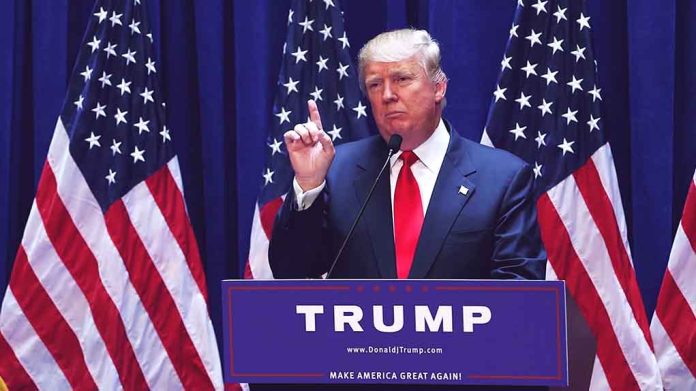
President Trump’s pardon of Army Lt. Mark Bashaw ends a three-year injustice that saw a decorated officer court-martialed and discharged for refusing COVID-19 mandates that have since been abandoned by the military itself.
Key Takeaways
- President Trump pardoned former 1st Lt. Mark Bashaw, who was court-martialed in 2022 for refusing to comply with COVID-19 mandates, including testing and mask requirements.
- Bashaw served 17 years in the military before being discharged in 2023, despite the military judge issuing no punishment after his conviction.
- His case was prosecuted by Eugene Vindman, brother of Alexander Vindman, who later celebrated the conviction publicly.
- Approximately 8,200 service members were separated from the military for refusing the COVID-19 vaccine, with Trump’s executive order now offering incentives for their return.
- The presidential pardon removes Bashaw’s criminal record, which could have severely limited his future employment opportunities.
Standing on Principle Against COVID Mandates
Former Army 1st Lt. Mark Bashaw has received a full presidential pardon from President Trump, clearing his name after being convicted in a 2022 court-martial for refusing to comply with COVID-19 safety protocols. Bashaw was found guilty of disobeying orders to telework, submit negative COVID-19 test results, and wear a mask indoors at his duty station. The conviction made history as the first known court-martial related to COVID-19 mandate violations, marking a troubling precedent in military justice that the Trump administration has now addressed through executive clemency.
Bashaw, who requested but was denied a religious exemption based on his Christian beliefs, stood firm on his convictions throughout the ordeal. Though the military judge overseeing his case declined to impose punishment following the conviction, the Army still proceeded with his discharge in 2023, ending his 17-year military career. The pardon represents not just personal vindication for Bashaw but also signals the administration’s position on what many conservatives viewed as overreaching pandemic policies that trampled religious freedoms and personal medical autonomy.
The Vindman Connection and Political Prosecution
Adding a layer of political intrigue to Bashaw’s case is the identity of his prosecutor: Eugene Vindman, the twin brother of Alexander Vindman, who gained notoriety during President Trump’s first impeachment proceedings. According to reporting from RedState, Eugene Vindman not only prosecuted Bashaw but publicly celebrated the conviction afterward. This connection raises questions about whether Bashaw’s prosecution was purely about military discipline or carried political undertones, especially given the Vindman family’s history with the Trump administration.
“I just received a presidential pardon from President Donald J. Trump. I am humbled, grateful, and ready to continue fighting for truth and justice in this great nation,” said Mark Bashaw, Former Army 1st Lieutenant.
The irony of Bashaw’s discharge becomes more apparent when considering that the Pentagon eventually dropped its military COVID-19 vaccination mandate in 2023 following congressional pressure. This policy reversal came too late for thousands of service members, including Bashaw, who had already seen their careers terminated. The case exemplifies how rapidly shifting pandemic policies created victims of those who maintained consistent positions based on personal or religious principles rather than political expediency.
Trump’s Broader Push for Military Justice Reform
President Trump’s pardon of Bashaw aligns with his administration’s larger efforts to address what many conservatives view as politicization of the military during the pandemic. In January, Trump issued an executive order offering incentives for service members who were separated over vaccine refusals to return to duty, including provisions for back pay under certain conditions. Military officials report that of the approximately 8,200 service members separated for refusing the COVID-19 vaccine, only about 100 had returned to service as of April 2023, highlighting the lasting damage inflicted by these policies.
“A court-martial conviction carries lifelong collateral consequences of a federal conviction, beyond punishment imposed by the court,” said Amburr Reese, Military Spokesperson.
The presidential pardon is particularly significant for Bashaw’s future prospects. As military officials have acknowledged, a court-martial conviction carries serious lifelong consequences that extend far beyond any formal punishment. The federal conviction would have appeared in background checks, potentially limiting Bashaw’s employment opportunities and standing in his community. By issuing this pardon, President Trump has not only recognized the officer’s principled stand but also restored his ability to move forward without the stigma of a federal conviction following him throughout civilian life.
A Victory for Religious Liberty and Military Honor
For many conservatives, Bashaw’s case represents more than just one officer’s stand against COVID mandates—it symbolizes resistance to what they view as an erosion of constitutional rights and religious freedoms within the military. Bashaw cited both his military oath and his Christian faith as reasons for refusing compliance with mandates that millions of Americans also questioned. His pardon sends a powerful message about the importance of allowing service members to maintain their religious convictions even while serving their country, a principle that resonates deeply with Trump’s base of supporters.
“Some examples may include social consequences and difficulty in obtaining future employment, as criminal convictions are generally public information and frequently reported in federal and state criminal and licensing databases,” said Amburr Reese, Military Spokesperson.
As the military continues to face recruitment challenges and struggles to rebuild trust with segments of the American public, this pardon may serve as a step toward healing. For the thousands of other service members separated over COVID policies, Bashaw’s pardon offers hope that their sacrifices will be recognized and that perhaps additional remedies may be forthcoming. More broadly, it underscores President Trump’s commitment to defending individual liberties against government overreach, even—or perhaps especially—within the hierarchical structure of the military itself.


